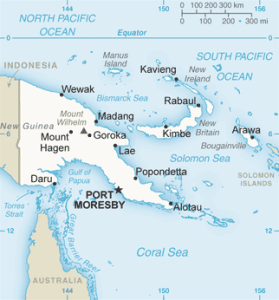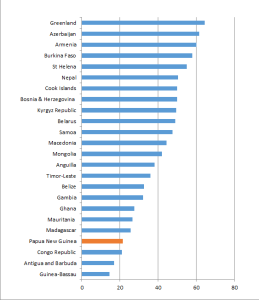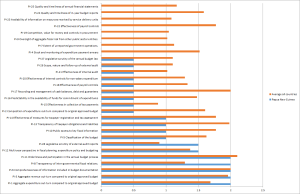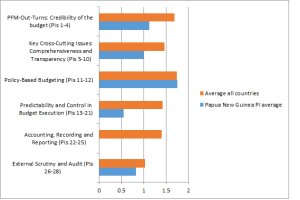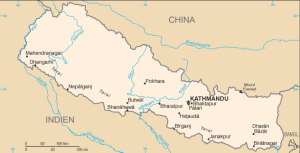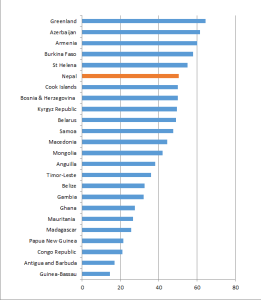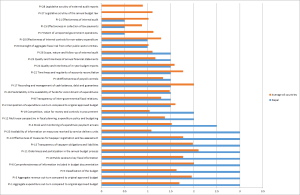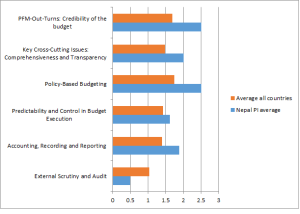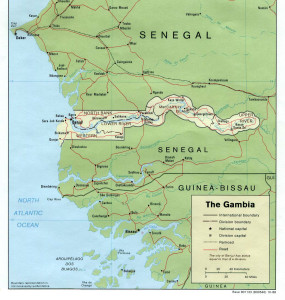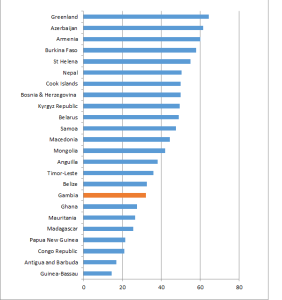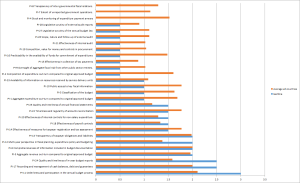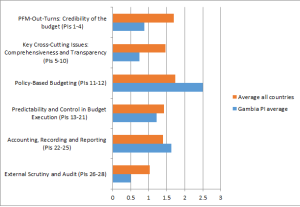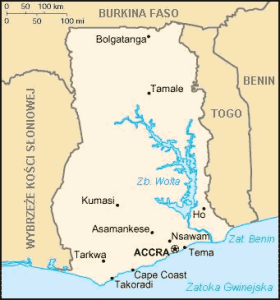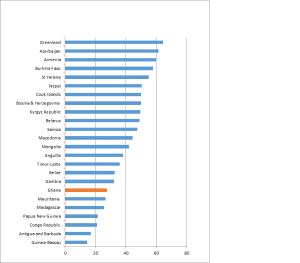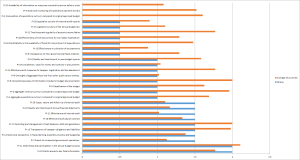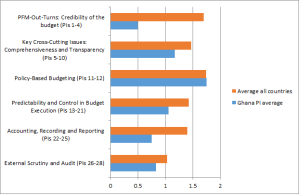Papua New Guinea Public Financial Management Profile
Introduction
This note presents a series of charts which provide an overview of the Papua New Guinea’s recent public financial management (PFM) performance based on this country’s 2015 Public Expenditure and Financial Accountability (PEFA) assessment. Comparisons are made between Papua New Guinea’s performance and the performance of the other twenty-three countries that had PEFA assessments published in 2014-2015. All analyses have been prepared using results reported from using the 2011 PEFA methodology.
Overall PFM performance
Individual country PFM performance has been determined by applying the following points scale to reported individual performance indicator (PI) scores as presented in Table 1. No points were allocated to PIs that were not scored because either data was unavailable, a D score was given or the PI was not applicable.
Table 1: PI scoring methodology
|
PEFA PI score |
Points allocated |
|
A |
3 |
|
B+ |
2.5 |
|
B |
2 |
|
C+ |
1.5 |
|
C |
1 |
| D+ |
.5 |
| D |
0 |
The graph in Figure 1 below shows Papua New Guinea’s overall score was ranked 21st out of the twenty-four countries.
Figure 1: Aggregate PEFA scores for 24 countries
Details of the distribution of overall country scores across PFM performance categories, as determined by PFMConnect, are presented in Table 2. Papua New Guinea’s overall score was 21.5 points.
Table 2: Distribution of country PFM performance levels
| PFM performance | Overall Scores | Number of countries |
| Very strong | 66.37-84 | 0 |
| Strong | 49.57-66.36 | 8 |
| Moderate | 32.77-49.56 | 7 |
| Weak | 15.97-32.76 | 8 |
| Very weak | 0-15.96 | 1 |
| Total | 24 |
Papua New Guinea’s overall PFM performance is classified as “weak”.
PI performance
The graph in Figure 2 below shows the scores for Papua New Guinea’s individual PIs compared with the average score recorded for each PI across the twenty-four PEFA assessments we have studied. Please note that no scores were recorded for the top eight indicators in Figure 2 as seven PIs (PI-4, PI-9, PI-19, PI-22, PI-23, PI-24, PI-25) received D scores whilst one PI could not be scored PI-7) because of insufficient information.
Figure 2: Papua New Guinea PI score comparisons
Download a pdf version of Figure 2 here (Papua New Guinea PIs) to review individual PI scores in more detail.
Twenty PIs were assessed. Five PIs had scores above the country average, one PI had a score equal to the country average whilst fourteen PIs had scores below the country average.
Performance across key PFM activities
The graph in Figure 3 below shows the average scores for the six key PFM activities compared with the average score recorded for these activities across the twenty-four country PEFA assessments we have studied.
Figure 3: Papua New Guinea key PFM activity comparisons
One key PFM activity recorded a score equal to the country average whilst five remaining key PFM activities recorded scores below the country average (one of the latter activities recorded a zero score).
PEFA ASSESSMENT
You can download the 2015 PEFA assessment for Papua New Guinea here.
